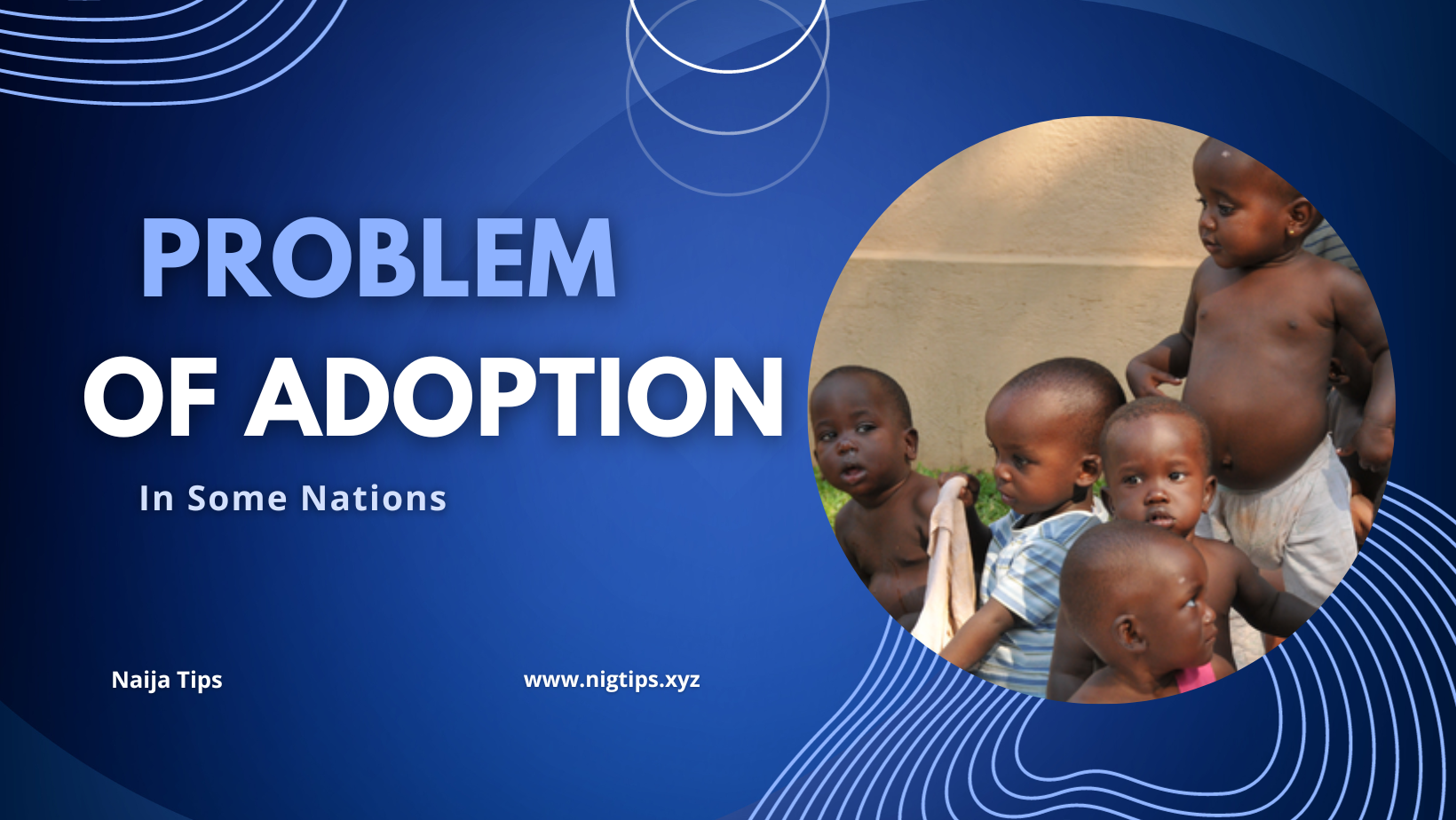Adoption in Nigeria can take place either statutorily or customarily and will vary by state. Adoption can be an arduous process that takes both paperwork and time; for this reason it should not be undertaken lightly.
There is no minimum residency requirement; however, applicants must be married couples at least 25 years old and 21 years older than the child they wish to adopt. Singles and same-sex couples cannot adopt children in Nigeria.
The Problem of Adoption in Nigeria
Adoption is an excellent way of providing children with loving families and giving them every chance at success in life. Adoption protects children from abuse, curbs child trafficking and allows adopted children to access an excellent education.
But adoption does not come without its challenges: several sociocultural factors and misconceptions hinder its acceptance in Nigeria.
Read: Adopting A Child Legally in Nigeria.
As well, it's crucial that prospective adoptive parents partner with a reputable adoption agency in Nigeria in order to ensure ethical adoption practices. Their staff must have knowledge of local laws and requirements.
In Lagos state for instance, prospective adoptive parents must foster a child for three months prior to petitioning the court for an adoption decree to prevent fraud and ensure health verification of the child.
Under Nigerian law, only married couples are eligible to adopt. Married couples must both be Nigerian citizens; one partner must be at least 25 years old (21 years older than their child) before adopting. Furthermore, both parties must share the same sex.
Adoptive parents need to understand not only the legal requirements but also how long the process could take before being approved as adoptive parents. Being patient while waiting can be emotionally taxing; for Eaton it took two years before she finally adopted Maya.
The Problem of Adoption in the United States
Adoption is the legal process by which children join another family without inheriting biological or legal rights from both biological parents. While many choose adoption due to infertility issues, others do so out of kindness or wanting to provide shelter and care for a child who might otherwise not have one. Although adoption is legal and does not constitute any criminal acts, it can often be complex to navigate the process successfully.
Prospective adoptive parents in Nigeria may be required to stay for a bonding period that can last from several months to two years before petitioning a court for adoption. Each state sets its minimum bonding period.
Adoptive parents may also need to satisfy age and marital requirements: married couples must both be Nigerian citizens while single applicants should be at least 21 years older than the child they seek to adopt.
Prospective adoptive parents must fulfill several additional criteria in addition to those mentioned above, including financial stability and adequate health insurance to care for an adopted child.
They must also be of legal age to adopt in Nigeria without being convicted of certain criminal offenses; additionally, couples who share consanguinity or affinity with birth parents of an adopted child must submit evidence of disassociation from them by providing proof.
The Problem of Adoption in Europe
Adoption is the process by which a child becomes part of a family to which he or she does not belong biologically, often taking from several months to several years and often including the establishment of a bond between child and adoptive parent; adoptions may either be domestic or international in scope. Adoption should not be confused with child fostering which involves placing a child into another home who aren't biologically related; child adoption differs significantly in this respect from fostering which involves legal proceedings being undertaken against families who place non-biological related children into another home who do not belong biologically.
So long as the state in which a child resides does not state otherwise, their local social welfare office serves as the adoption authority. Prospective adoptive parents must directly approach this office to submit an adoption application; after which it will be forwarded onto the registrar of the court responsible and approved, which will terminate any care orders placed against him/her and place him/her into their care for an initial bonding period (ranging from several months up to several years). Furthermore, court officials appoint an officer of court known as "guardian ad litem" to represent him/her throughout proceedings.
Adoptive parents seeking to adopt from any state in Nigeria other than Lagos must be citizens. Nigerian law prohibits non-Nigerian nationals from adopting children; however, Nightlight offers an adoption program open to non-Nigerian nationals that provides for dual citizenship for these adoptive parents.
The Problem of Adoption in Australia
Adoption is a legal process that enables children who cannot be raised by their biological parents to legally join another family as full members, either inter-country or domestic adoption. Although adoption typically takes some time, if prospective adoptive parents commit themselves fully it can be accelerated significantly.
Adopting a child requires numerous steps, including submitting an application letter, attending pre-counseling sessions and filling out forms. Once accepted by an adoption panel, applicants must also undergo home assessment and interview by them before choosing an orphanage child and selecting them as an adoptive family match. Once this happens, bonding periods between adoptive family and adopted children typically range between several months to years before filing their adoption petition in court.
While adoption offers numerous advantages, it's essential that prospective adoptive parents fully comprehend its process before making their decision. Many countries have used adoption as a tool to perpetuate human rights abuses - Spain in the 1940s and Argentina in the 1970s being examples - while studies have also demonstrated that children raised in two-parent families experience lower rates of delinquency than those from single parent families or other structures (Free 1991; Rankin 1983).
Furthermore, not all adoptions are lawful - any attempt at kidnapping will incur prison sentences of imprisonment up to life imprisonment (Free 1991; Rankin 1983). Finally, adopting without adhering to lawful procedures constitute kidnapping which can even result in prison terms imposed against both parties (Richards 2005).



Post a Comment
0Comments